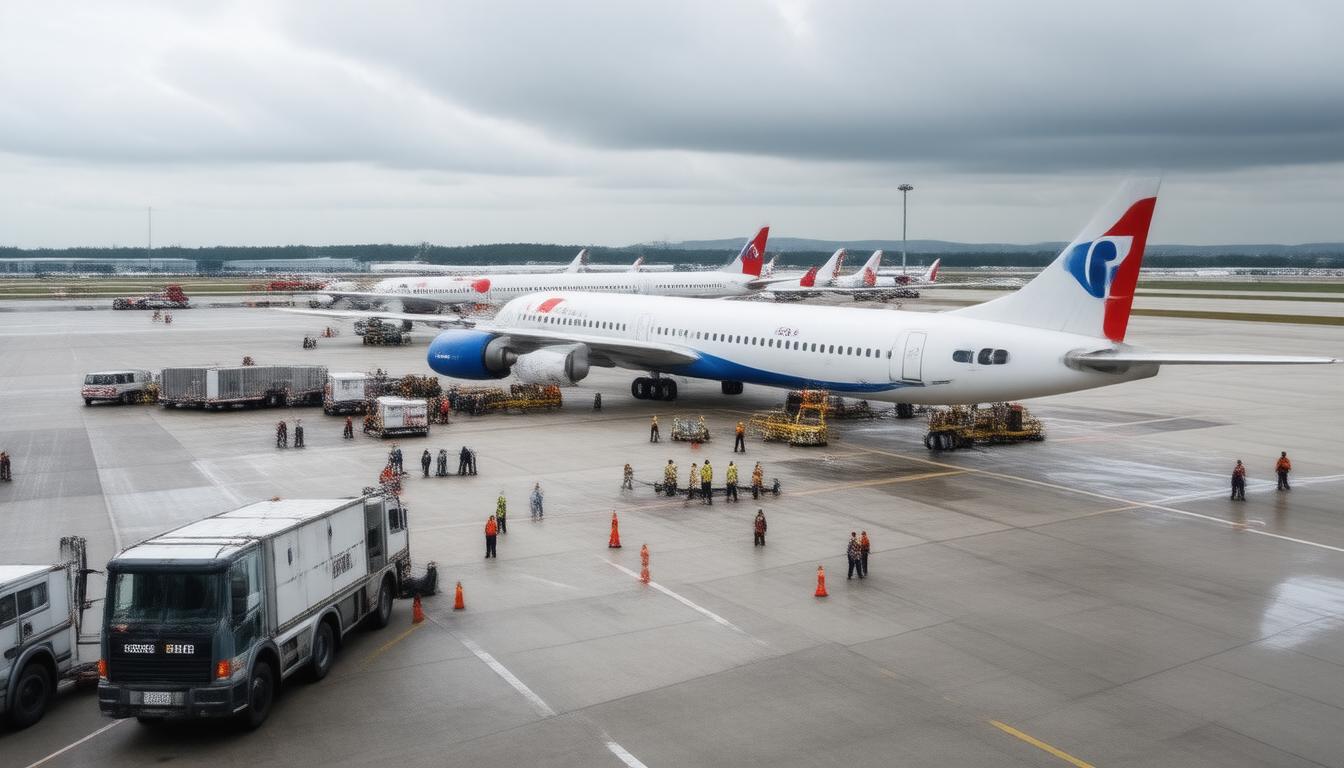The recent tragic crash of a Jeju Air Boeing 737-800 has prompted urgent regulatory actions and investigative measures in South Korea.
Resulting in a devastating loss of 179 lives, the crash has led the government to extend inspections on the country’s fleet of 101 Boeing 737-800 jets by one week, emphasizing the need for rigorous assessments of aircraft maintenance and safety practices.
This response by the Ministry of Land, Infrastructure, and Transport highlights the ongoing commitment to aviation safety and the scrutiny that airlines will face as investigations progress.
As authorities delve into the details surrounding the crash, including possible mechanical failures and pilot responses, the public remains informed about the measures being adopted to prevent future tragedies.
Key Takeaways
- South Korea is conducting urgent inspections on all Boeing 737-800 jets following the fatal Jeju Air crash.
- The investigation will focus on maintenance records, engine conditions, and operational standards of the involved airlines.
- Authorities are analyzing flight data and wreckage while reviewing potential regulatory actions against airlines for safety violations.
Inspection and Investigation of Boeing 737-800 Fleet
## Inspection and Investigation of Boeing 737-800 Fleet
In light of the catastrophic crash of a Jeju Air Boeing 737-800, which tragically claimed 179 lives, South Korea’s transport ministry has taken decisive action by extending the inspection period for all 101 Boeing 737-800 aircraft operated by local airlines.
Originally set to conclude earlier, these inspections will now be completed by January
10.
The primary focus of this extensive assessment is to evaluate maintenance records and the condition of the aircraft’s engines, which are produced by the CFM International joint venture between GE and Safran.
The unfortunate accident occurred during a flight from Bangkok to Muan County when the aircraft experienced a belly-landing and subsequently veered off the runway, resulting in a devastating explosion.
In response to this incident, the ministry is actively reviewing the operational standards of airlines.
There is a strong possibility that serious violations could lead to suspensions of airlines.
Additionally, to bolster aviation safety, an emergency meeting was convened with executives from major carriers such as Korean Air and Asiana Airlines, emphasizing the need for enhanced safety protocols.
A South Korean investigative team is set to travel to the U.S.
to meticulously analyze the flight data recorder of the crashed aircraft in collaboration with the National Transportation Safety Board.
They will examine the wreckage on-site and gather data from mobile devices discovered at the crash scene as part of a comprehensive investigation.
This ongoing inquiry seeks answers to pressing questions related to the failed deployment of the landing gear and the pilots’ decision-making process, which included a second attempt to land after reporting a bird strike.
In addition, investigations are extending to Jeju Air and the airport’s operations, leading to restrictions on travel for key officials involved in the case.
As the investigation progresses, the aviation industry remains vigilant, prioritizing safety and accountability to prevent future tragedies.
Response from Airlines and Regulatory Actions
The response from airlines following the tragic incident reflects a heightened commitment to aviation safety.
In light of the Jeju Air Boeing 737-800 crash, South Korea’s transport ministry has mandated a thorough inspection of all local Boeing 737-800 jets to ensure compliance with safety standards.
These inspections are not merely procedural; they encompass an in-depth review of the aircraft’s maintenance records and engine conditions, which are critical given that the engines in question are sourced from GE’s CFM International joint venture.
The ministry’s proactive approach aims to identify and rectify potential safety hazards before they can lead to further disasters.
Meanwhile, the collaborative efforts of airline leaders during emergency meetings indicate a sector-wide acknowledgment of the need for stringent safety enhancements and adherence to regulations.
As the investigation delves deeper into the operational practices of airlines, including Jeju Air, and the circumstances surrounding the accident, the aviation community watches closely, prioritizing the implementation of corrective measures to safeguard passengers.















